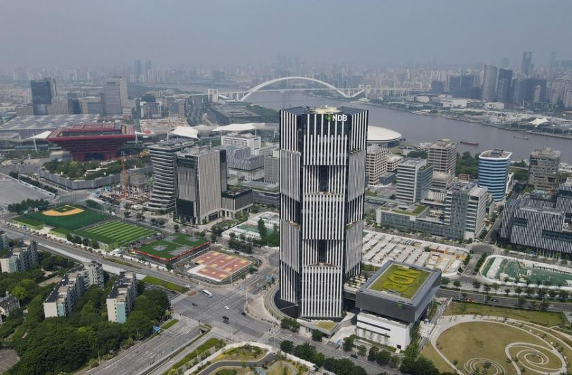By Liu Qiang
The 2023 BRICS foreign ministers' meeting is being held in South Africa on June 1, followed the next day by a "Friends of BRICS" meeting, to which foreign ministers from 15 other African and global southern countries have been invited. According to reports, 13 countries have formally applied to join the BRICS cooperation mechanism, while another six countries have expressed their willingness through informal channels. Saudi Arabia and Iran have requested to join the BRICS. Other countries that have expressed interest in joining include Argentina, the United Arab Emirates, Algeria, Egypt, Bahrain and Indonesia, as well as two East African countries and one West African country. So is it necessary to expand BRICS cooperation? What is the significance of the multi-polarization principle upheld by the BRICS cooperation mechanism?
As we all know, BRICS countries are committed to building a closer, more comprehensive and stronger partnership under the principles of openness, transparency, solidarity, deeper cooperation and common development and the BRICS spirit of openness, inclusiveness and win-win cooperation. This means that an expanded BRICS cooperation mechanism will amplify this purpose, benefiting not only BRICS member states but also the whole world.
As for the necessity of expanding BRICS cooperation mechanism, it is mainly reflected in the following two aspects:
First, we can help each other on a larger scale and solve problems in a coordinated manner to make greater contributions to the development of countries, regions, and the world at large. At present, BRICS countries account for 26.7 percent of the world's total land area and about 42 percent of the world's population. If more countries such as the above join, both territory and population will exceed 50 percent of the world's total. It is conceivable that such a large cooperative body will play a significant role in promoting the economic development of its member states and regions.

The headquarters building of the New Development Bank (NDB), also known as the BRICS bank, in east China's Shanghai, June 17, 2022. [Photo/Xinhua]
Second, it can build strength to collectively address challenges and create a balance to better hedge against discriminatory policies in certain countries. If the G7 is a platform for cooperation among developed countries, the BRICS is a platform for cooperation among emerging and developing countries, which can be seen simply from the composition of their respective members. Some developed countries often pay lip service to the problems of developing countries, adopt discriminatory policies against some developing countries, and even resort to sanctions against countries that do not side with them. The expansion of BRICS countries will promote solidarity, cooperation and mutual benefit under the BRICS framework, advance South-South cooperation, better realize economic and security strategic independence and serve the interests of developing countries.
The significance of BRICS countries' development is mainly reflected in the following aspects:
First, it can make a contribution to opposing hegemony and promoting world multi-polarization. The severity and complexity of the current world situation is, to a large extent, caused by a certain major country's adherence to the Cold War mentality and hegemonic practices. The BRICS countries advocate multilateralism and stand for moving the world towards multipolarity. The spirit of cooperation will form a powerful anti-hegemonism force, continue to uphold the vision of a multipolar world for the vast majority of countries, and make more effective efforts to this end.
Second, it is positive for global governance to prevent some developed countries from arbitrarily undermining the international order. In recent years, when it comes to global governance, some developed countries often talk about a "rules-based order" and make groundless accusations against developing countries, including BRICS members, for not acting "rules-based." Therefore, there is no doubt that the unity and growth of the BRICS countries will provide a great impetus for building a more agile, effective, efficient, representative and responsible international system and making its voice heard in strengthening and improving global governance.
Third, it plays a constructive role in addressing traditional and non-traditional security and building a safer world. Some important traditional and non-traditional security issues have seriously affected and troubled some developing countries. As an aggregation of developing countries, BRICS countries can share resources and solve relevant issues better through coordination on the basis of solidarity and cooperation, thus playing a constructive role in building more stable regional and world security.
All in all, in the current complex, volatile, and uncertain international environment, the growth of the BRICS countries is worthy of expectation as a driving force for building a more balanced international politics and economy and a more secure and prosperous world.
Liu Qiang, a special commentator on current affairs for CGTN, is the vice chairman and director of the Academic Committee of Shanghai Center for RimPac Strategic and International Studies.

 中文
中文



